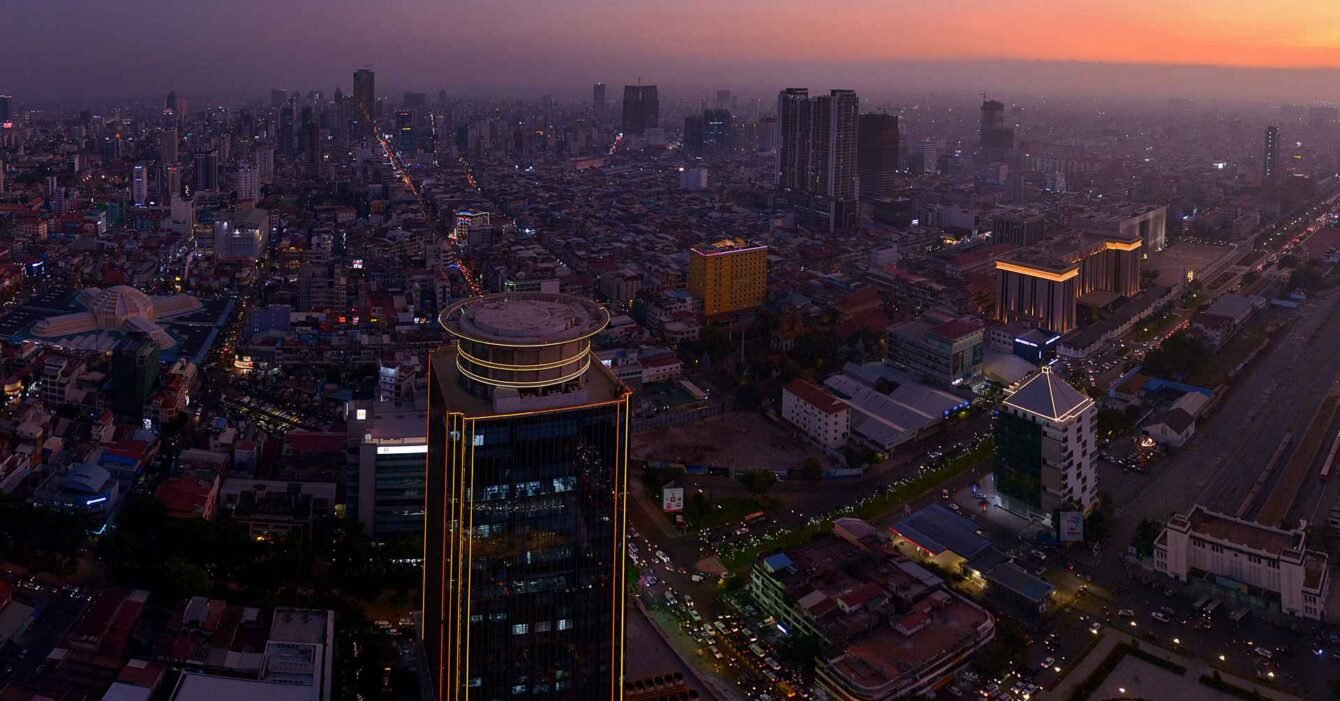Cambodia Construction Market Size Projections in 2027
According to Cambodia construction consulting data, Cambodia’s construction market demonstrated robust performance in 2022, recording a market size of $11 billion. Looking ahead to the period between 2024 and 2027, the market is forecasted to maintain a vigorous average annual growth rate (AAGR) of over 6%. This growth will primarily be supported by significant investments across multiple sectors, including energy, transportation, logistics, and residential construction. The primary impetus behind this expansion is the increasing demand for energy and the national objective to enhance the proportion of renewable energy within the country’s energy portfolio.

To fully leverage the opportunities and navigate the evolving landscape of Cambodia’s construction market, it is crucial for industry stakeholders—including investors, developers, and policymakers—to engage with expert Cambodia construction consulting services. These professionals offer specialized insights and tailored solutions that are key to capitalizing on the market’s growth potential and aligning with the country’s developmental goals. By partnering with experts in the field, businesses and government entities can ensure that their projects are not only viable but also strategically positioned to benefit from the expanding construction sector in Cambodia.
Key Sectors in Cambodia’s Construction Market: from Residential to Infrastructure
The Cambodian construction market is meticulously segmented into several key sectors, each playing a critical role in the overall landscape of the industry. The market segmentation reflects the diverse needs and opportunities within the country:
The primary sectors include Residential Construction, which focuses on both single-family and multi-family housing projects, reflecting the country’s growing population and urbanization trends. The demand for residential spaces continues to rise, driven by the ongoing urban migration and a growing middle class seeking improved living conditions. Infrastructure Construction is another significant segment, involving the development of crucial road and rail networks that bolster national connectivity and economic growth. Investments in this sector are also directed towards public utilities and infrastructure maintenance, which are essential for sustaining economic activities and expanding into new areas.
The Energy and Utilities Construction sector is geared towards enhancing power generation capacities, including renewable energy sources, to meet the increasing energy demands and support sustainable development. Industrial Construction caters to the establishment of manufacturing plants and facilities that are essential for the country’s industrial expansion. It is also evolving to include high-tech and energy-efficient industrial complexes, which are becoming increasingly crucial as Cambodia aims to attract foreign investment and boost its manufacturing sector.
Commercial Construction addresses the needs of the tourism and services sectors through the development of hotels, offices, and retail spaces. Lastly, the Institutional Construction sector is focused on building educational and healthcare facilities, which are fundamental for improving the country’s social infrastructure. Each of these sectors is vital for the holistic development of Cambodia’s construction industry and contributes significantly to the nation’s economic fortitude and infrastructure enhancement.
Navigating the complexities of Cambodia’s dynamic construction market requires engaging with specialized Cambodia construction consulting services. These services are indispensable for stakeholders aiming to understand and maximize the opportunities within this burgeoning market. Through strategic collaborations with construction experts, stakeholders can effectively harness insights and innovative solutions to meet the nuanced demands of the construction landscape, driving significant development and progress across the nation. This approach not only ensures the viability of projects but also aligns them with broader economic and developmental goals, ensuring a prosperous future for Cambodia’s construction industry.
